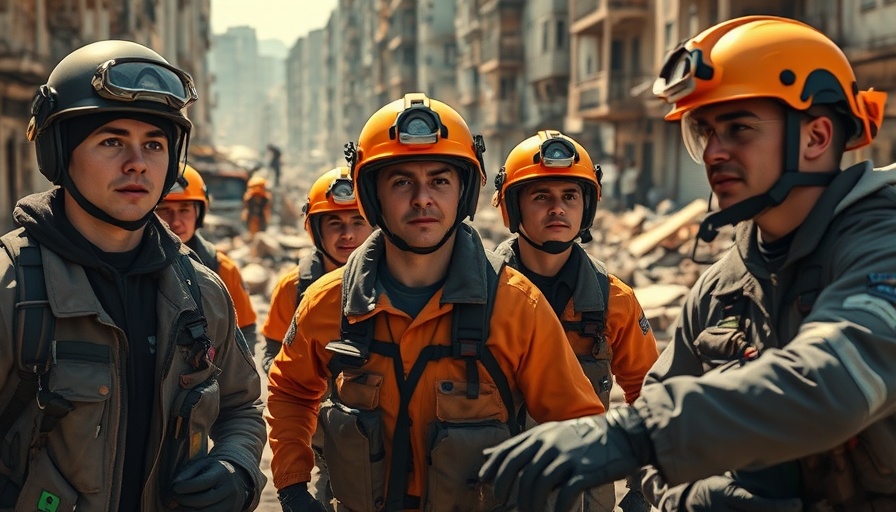
Tragic Toll of Conflict: Recounting Innocent Lives Lost
The ongoing violence in Gaza has claimed the lives of countless innocent individuals, resonating deeply with the global community. Among the latest victims reported are nine children belonging to a pediatrician working at Nasser Hospital in Khan Younis. Alaa Najjar was on duty during the strike, only to return home to find her family’s house engulfed in flames. Tragically, nine of her ten children lost their lives, with her husband severely injured, and their surviving child in critical condition.
A Devastating Death Toll: The Human Cost of War
As of May 24, 2025, nearly 80 individuals have died within the last 24 hours due to renewed Israeli strikes, contributing to a staggering total of over 53,901 deaths since the onset of the current conflict, sparked by the Hamas-led attack on October 7, 2023. The despair in Gaza is palpable as hospitals struggle to function amidst the onslaught, with many areas labeled as 'dangerous war zones' by Israeli authorities.
The Impact of Blockades on Humanitarian Efforts
The situation is exacerbated by the ongoing blockade imposed on Gaza, affecting more than 2 million residents. Although a handful of aid trucks have entered the region, the amount is significantly lower than during previous ceasefires, raising concerns about the humanitarian tragedy unfolding within its borders. Efforts to establish a more effective aid delivery system, backed by the U.S., have been met with criticism from the United Nations, which insists that humanitarian principles must be upheld.
Echoes of the Past: Lessons from Historical Conflicts
This is not the first time communities in conflict zones have faced devastation. Comparing the situation in Gaza to conflicts in Syria or Yemen highlights a troubling pattern of civilian casualties. Such historical precedents remind us of the urgent need for international intervention and accountability to prevent future tragedies.
The Role of Narrative in Understanding Conflict
For many, the pain of loss is articulated through stories like that of Alaa Najjar. As we learn about the lives lost, it becomes imperative to shift the narrative from numbers to human experiences. This approach not only generates empathy but catalyzes discussions surrounding geopolitical policies and humanitarian needs.
Public Reaction and the Importance of Awareness
The gravity of such stories continues to stir emotions globally, prompting widespread sympathy and discussions about the ethics of warfare. How can the world remain silent while innocent lives are extinguished? Public pressure often influences political action, urging world leaders to take a firm stance against violations of humanitarian laws.
The Path Forward: Finding Solutions Amidst Chaos
As international organizations attempt to navigate the crisis, solutions seem elusive. There is an urgent need for sustainable ceasefire agreements and structural changes in governance that prioritize human life over military agendas. For those of us observing from afar, supporting charitable organizations that aid war-torn regions is one actionable step towards building a better future.
As we synthesize the tragic narrative of a physician losing her children with the broader implications of war, one question remains: what action will society take to ensure such tragedies are not repeated? The answer lies within each of us.
 Add Element
Add Element  Add Row
Add Row 



Write A Comment